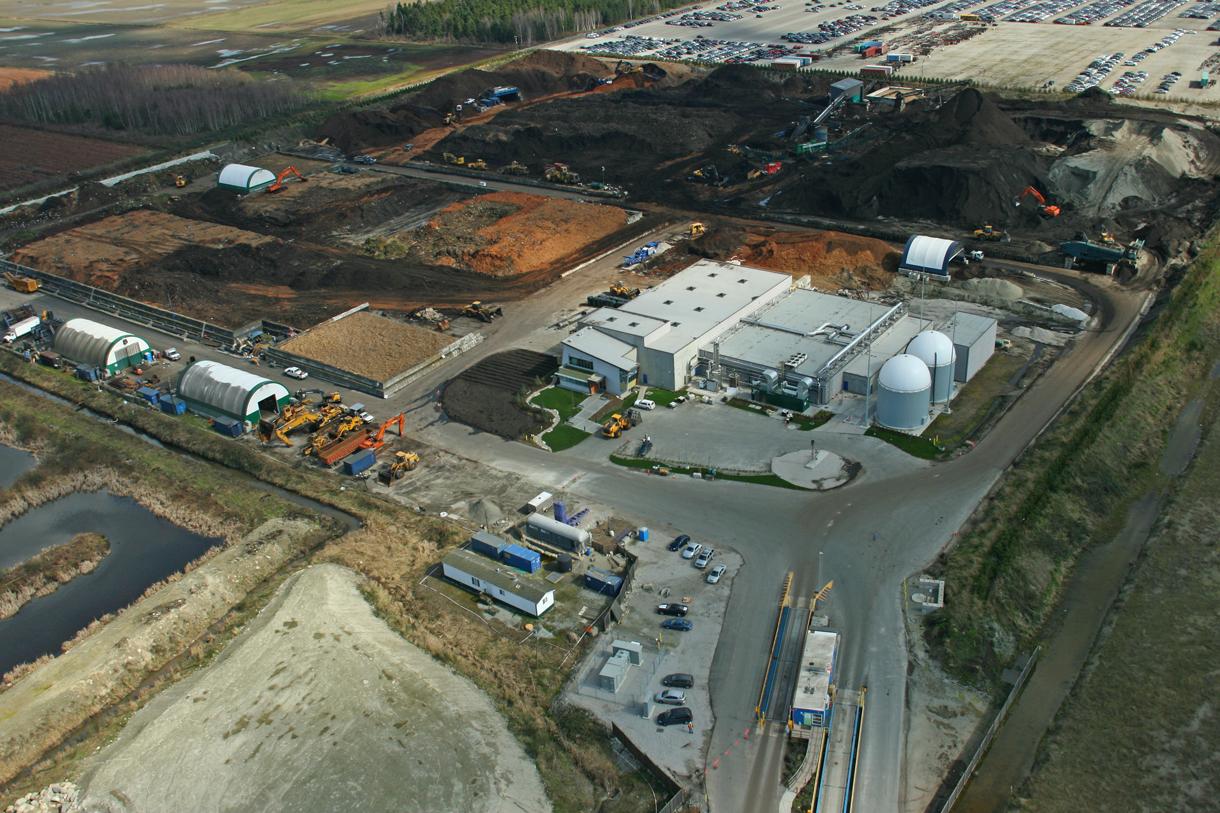Firm plans to turn table scraps into power in Massachusetts
Even before Harvest Energy gets their anaerobic digester up and running in Massachusetts, they have a facility in Richmond, British Columbia, that converts food waste into mulch.
As part of its renewable energy program, Massachusetts will prohibit large institutions from sending food waste to the dump.
Starting next July, major facilities must either compost their scraps, or send them to an anaerobic digester. Paul Sellew, the CEO of Harvest Power, which plans to run anaerobic digesters to convert thousands of tons of food waste to energy in Massachusetts, thinks food waste bans will help us take full advantage of the renewable energy source on our plates.
The ban, as it stands now, would cover large restaurants, grocery stores, universities and other institutions. Right now, about 97 percent of all US food waste winds up in a landfill, or incinerator, Sellew said. This should change that.
Sellew praised the Massachusetts approach to these new regulations — which were done as government rules — rather than in laws passed by the state legislature.
"It’s a little bit of a chicken and egg issue, right? You need to have feedstock to build out the facility such as anaerobic digestion and composting, and then you also need this infrastructure to be built so that you have a place to take the food waste," he said. "It’s a very pragmatic and practical way to incent companies and incent generators basically to do the right thing."
About one million tons of food waste are produced each year in Massachusetts, according to state estimates, and about 40 million tons across the country.
"Sending it to a landfill or an incinerator," Sellew said, "you end up losing the value inherent in this material."
To skeptics, Sellew points to Germany — a country that gets the largest portion of its renewable energy supply from anaerobic digestion. He says creating plants that produce energy from waste is far more efficient, for example, than growing corn to make ethanol.
"In Germany, they’ll take the cob, the kernels, the entire plant, and because we break down cellulose and hemi-cellulose, starches and sugars in an anaerobic digester, you get about three to four times the energy per acre," he said. "The Germans looked at this from a science base, and they did policy accordingly. … Our elected representatives decided to do something for the corn growers."
These digesters are essentially man-made versions of a cow's stomach.
"Literally we are mimicking the biological processes that go on in the stomach of a ruminant with one difference," Sellew said. "We capture the biogas. Basically, it does not go into the atmosphere. It is captured, and biogas is about 65 to 70 percent methane, and methane is natural gas. So we capture and use that as a source of renewable energy."
So what would normally leave the cow's behind is being turned into energy in these anaerobic digesters. Once it's captured, it can be fed into a generator right on site, with the resulting power delivered to the energy grid. But it's also possible to remove the CO2 from the biogas and pipe it into the natural gas grid alongside the more conventional version.
It can also be converted into CNG, or compressed natural gas, which is easier to transport.
"You’ve got a fuel that can be used for electricity, can be used for anything that natural gas is used for, and can also be used as a transportation fuel, and that also is available on a 24/7 basis," Sellew said.
Of course, it takes a fair amount of waste to power a home. According to Sellew, it requires roughly three to four tons of waste to power a home for a month — that's a lot of scraps.
Massachusetts already has anaerobic digesters up and running — both a dedicated facility at Deer Island and at water treatment plants in many communities.
In fact, anaerobic digesters have been common in the wastewater industry for quite some time.
"What is new about what Harvest is proposing is the application of that technology to new organic waste streams, such as food waste, such as leaves, grass and brush," Sellew said.
Sellew says Harvest hopes to be operational "within a few years." He says permitting and siting a plant is a major step, meaning it doesn't happen quickly.
